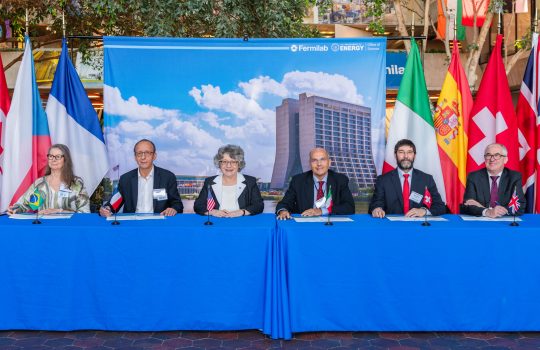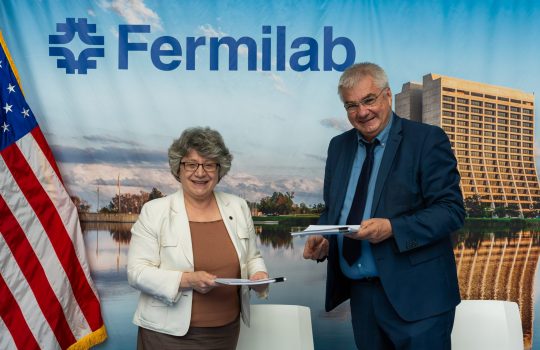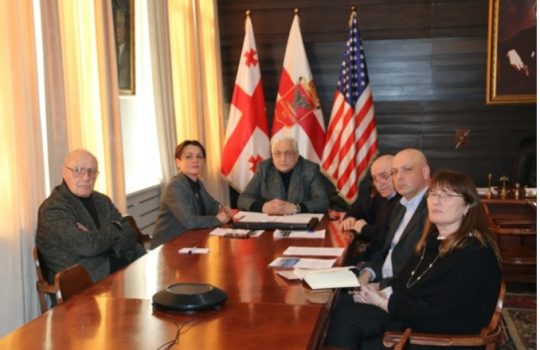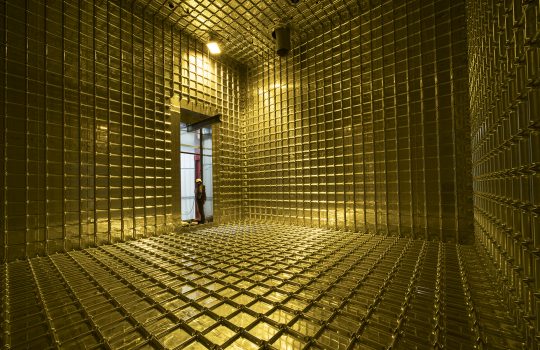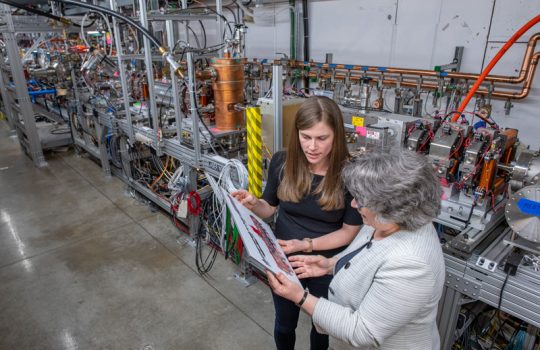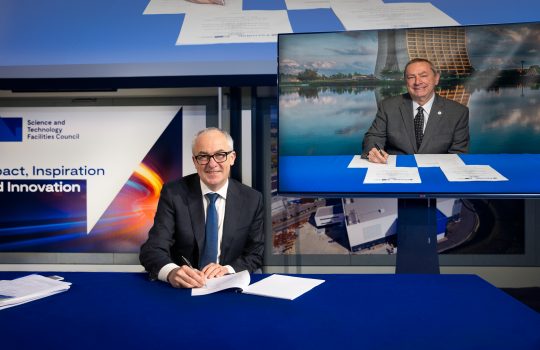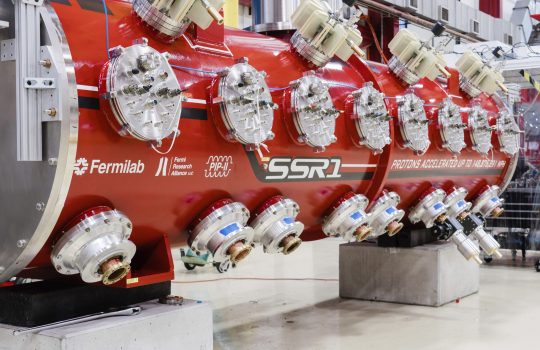International science organizations sign agreement to provide hardware for the Deep Underground Neutrino Experiment
- DUNE
- FAPESP
- INFN
- international collaboration
- international engagement
- particle detector technology
- STFC
- UNICAMP
On Nov. 17, representatives of funding agencies from five countries signed a memorandum of understanding, affirming their commitment to contribute to the construction of components for DUNE.

